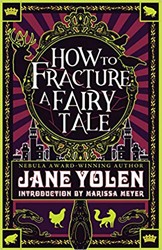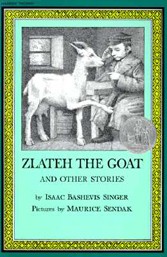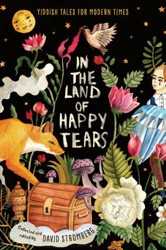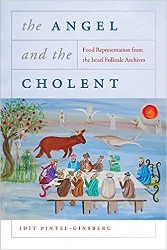The subtitle of this bold new book from the Jewish Women’s Storytelling Collective fills in gaps from traditional midrashim and Jewish folklore. While these traditional stories convey essential moral lessons through the tales of memorable characters, women — wise, brave, and powerful — are made conspicuous by their absence. Deborah Gordon Zaslow, Gail Pasternack, and Deborah Rosenberg have included a range of responses to this troubling omission, welcoming many different voices to restore the female perspective to Jewish storytelling. Some stories contain personal anecdotes, while others change the gender of the protagonists in well-known narratives. The collection’s most successful chapters confront the historical exclusion of women, and engage with the implications of reinterpreting Jewish values from a more inclusive perspective.
Each story is followed by a brief background on its original published form, as well as an explanation of why and how it has been reimagined. In Deborah Rosenberg’s “The Trouble with the Spoon,” a girl makes the halachic decision of how to use a dairy spoon that has been accidentally used to stir meat cholent. Libke, the pragmatic and confident heroine, decides without apology to enjoy the meat meal. Her voice implicitly contrasts with the more abstruse discussions by male scholars of this familiar domestic situation. Although women have historically been associated with cooking, they still had no authority in rabbinic decisions about kashrut.
Sometimes the resolution of a dilemma is incomplete. In “Edel’s Spark,” based on a story about the Baal Shem Tov’s daughter, author Lisa Huberman admits the painful reality of excluding Jewish women from scholarship. Unlike many daughters of tzaddikim, Edel is granted a certain amount of privilege, and is permitted to learn alongside her father’s students. However, her marriage brings an abrupt end to this intellectual freedom. There is definite bitterness in Edel’s realization that “her destiny was not to be her father’s successor, but to give birth to the next successor.” Edel finds a sense of validation when she meets a woman from a similar background; this new companion also longs for a partner in studying Torah. The two friends are comforted by the recognition that at least they are not alone, even if their commentaries, like many women’s, might “fad[e] into the sands of time.”
This collection also speaks to how women’s disempowerment may have terrible consequences. In Deborah Rosenberg’s “A Charm in the Red Dress,” the disturbing message still holds true today. A predatory male in the town of Berdicheva takes advantage of Mordecai, an honest tailor, who has created a beautiful Rosh Hashana dress for a customer, Shayna. Mordecai is a decent— but unfortunately gullible — man; when a manipulative stranger offers him a financial reward to sew a charm inside the new garment, Mordecai accepts. With the help of the charm, the stranger almost coerces the young woman into a sexual encounter. Although she escapes, and readers are reassured that the stranger will never threaten another woman, Shayna’s close call is hardly an unusual experience. Almost equally troubling is the fact that Shayna must patiently explain to Mordecai why his original decision had been wrong. Rosenberg’s version demonstrates that it is not enough for women to defend themselves; they must also educate men to be their allies.
Welcoming women’s voices into Jewish texts from the past is an inseparable part of the Jewish present and future. The Rooster Princess and Other Tales is a valuable contribution to this legacy.
Emily Schneider writes about literature, feminism, and culture for Tablet, The Forward, The Horn Book, and other publications, and writes about children’s books on her blog. She has a Ph.D. in Romance Languages and Literatures.





